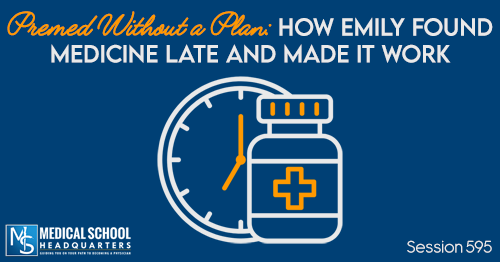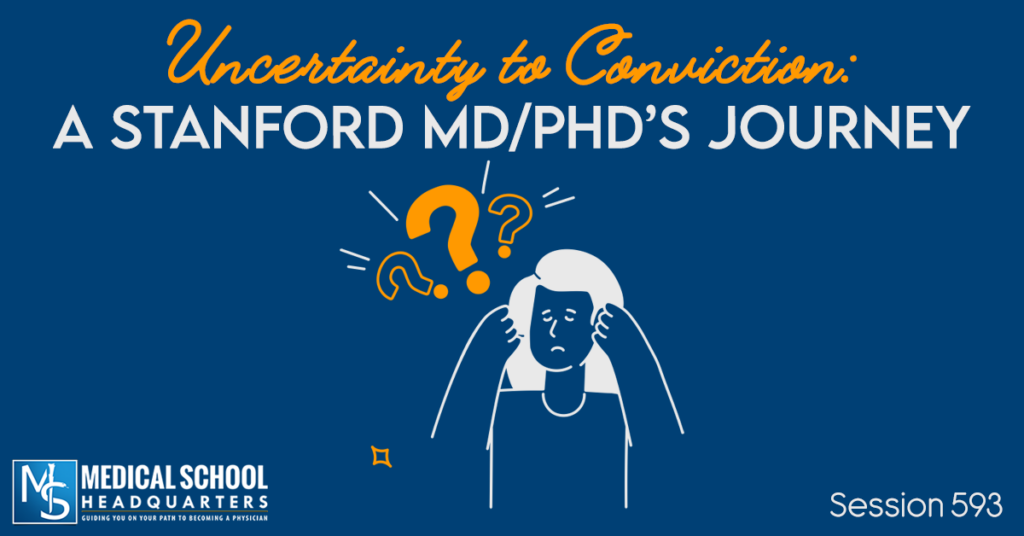Who are you?
I’m a thoracic surgeon in Philadelphia. I am the first of my family to graduate medical school or any graduate school. I grew up in Northeast Philadelphia and went to a local state school for college. I did not decide to go to med school until after I graduated college.
[Related Post: Details About (Almost) Every Medical Specialty]
What did you major in?
Psychology.
[Related Post: Picking an Undergraduate Program]
Why do you want to be a physician?
My grandmother became ill when I was in high school. It was a preventable illness that she had neglected for many years, but ultimately her cancer developed and became widespread. My mother and her brothers tried to care for her in her home, but the stress of care taking and raising their own families became too much. They fought and became estranged. I started college in psychology, thinking I wanted to become a counselor for families, but by the end of school I became interested in treating people with cancer. I worked in health counseling and a doctor’s office after graduation. Working with doctors on a daily basis really inspired me to pursue medical school and gave me the confidence that I could be successful there.
What was the most challenging part of being a premed student?
I worked full-time while going back to school at night to take my premed courses. I had been out of undergraduate classes for four years when I went back to school at night for my premed courses. I went to school three nights a weeks from 7-10 pm, and had a full time job during the week and a part time job on the weekends. It was definitely hard to make it through those classes and keep my grades up. I had very little social time.
Who did you lean on for support?
I was living with my boyfriend at the time, who later became my husband. He was a full time graduate student, so we were both really focused on our careers. It was good to be with someone with similar goals to mine. That really helped me to stay focused. I also lived very close to my family, so it was great to be able to see them often and go to family parties to relieve stress.
If you had a mentor, how did you find him/her?
My early mentors were the physicians I worked with. They were very encouraging when I told them I was interested in medical school and would bring in their old textbooks for me to read, so I could understand what they were doing. It was my first real shadowing experience.
What was the best general premed resource?
I was going to a night school program specifically for post-baccalaureate students who wanted to go to med school. There were counselors and workshops that we could go to for advice in our application process. Plus, there were a lot of us together with a similar goal. Since we were all older students, there was a lot of support there. No one was acting competitively, everyone was sharing their study tips and helping each other fill out applications.
What was your relationship like with your school’s premed advisor (assuming you had one)
The school’s advisors were helpful, but not our main source of application support. Other students and previous graduates of the program were very helpful in filling applications and offering advice on balancing work and school and test taking strategies for the MCAT.
What was your hardest class?
The hardest class was definitely organic chemistry! The multi step experiments in the lab were hard for me, and counted off alarmed part of the grade. Fortunately, I had a really great bench partner, who made me laugh at myself and we helped each other out a lot!
What was your most impactful extracurricular?
I think one of the most important parts of my application was that I had been working in a healthcare clinic for several years after undergraduate. Working full time helped me to develop more maturity, and putting in long hours working and going to school demonstrated that I could handle a heavy workload and stress. I think it was important to show my motivation for medical school as well as my determination to get there. I think it’s important to really evaluate your own motivation for entering medical school, rather than just “falling into it.” Anyone who was reviewing my application could see how much I wanted it by how hard I had to work to get there.
What would you change?
The easy thing to say would be I wish I had decided sooner and taken my premed classes in undergraduate school. I would have liked to have gone to medical school at a younger age. But I honestly don’t think I was ready at that point in my life, and I’m happy with the time I took off to work after undergrad.
How did you prepare for the MCAT?
For MCAT preparation, I studied with friends on the weekends and took a Kaplan prep course. Studying with friends was great, because it was our social time together, too. We’d have a potluck dinner or BBQ and go over test questions.
Roughly how much did you spend on MCAT prep?
The Kaplan course was about $800, but worth it. Other prep books about $100.
[Need MCAT Prep? Save on tutoring, classes, and full-length practice tests by using promo code “MSHQ” for 10% off Next Step full-length practice tests or “MSHQTOC” for $50 off MCAT tutoring or the Next Step MCAT Course at Blueprint MCAT (formerly Next Step Test Prep)!]
What were your top MCAT resources?
I don’t remember the names of the books I used, but Kaplan was my main prep course. Their materials were excellent.
What would you change about your MCAT prep?
I felt very nervous going into the MCAT, but I did very well. Kaplan offered me an instructor position after I got my scores back. The essay portion really threw me off during the test. I wish I had practiced alternating between writing and answering multiple choice questions more.
How did you prepare for your applications?
Our school program had an application workshop for completing applications. Our advisors also read and gave critical feedback on your personal statements. I also had my fellow applicants read over my applications to offer feedback and look for any typos!
Roughly how much money did you spend on applications and interviews?
I did not travel for interviews as I live in a city with 5 medical schools. I don’t remember exactly how much I spent, but it wasn’t a lot.
[Related Post: MCAT Prep on Any Budget]
How did you choose what schools you applied to?
My program offered early decision entry to several local medical schools if the applicant maintained a certain GPA in the program and MCAT score. I applied to those local schools and one other local school. The program was very rigorous, with a high attrition rate, so the local medical schools had high confidence in recruiting the graduates of that program. Entering a program like that was definitely my best investment for applying to medical school.
How did you prepare for your interviews?
I did not over prepare for interviews. Of course, you should know your application inside and out, and be able to defend any possible weaknesses. You should be able to clearly articulate why you want to be a doctor, and it should clearly be your own decision, not just because someone in your family is a doctor. I think you should have a clear goal in mind. I knew I wanted to work with cancer patients. That was really important to me from my own families experience with cancer, and it was a major motivating factor for me to be interested in medicine. I think the interviewer responded well to how I incorporated my personal story into my academic history and timeline. I did some mock interviews with friends, but nothing formal with school. But most of all, I made sure to eat well and sleep well before the interview, so that I could be calm for the interview.
Why do you think you were a successful applicant?
I think there were several factors in my successful application. I was an older and more mature student who could demonstrate that I could carry a heavy academic workload and full time job. I could clearly articulate my motivations for entering medical school and what I hoped to do with my medical degree. I worked very hard in my post-baccalaureate-pre-health program, maintaining a high GPA and MCAT scores. However, it’s also really important to have a good support system, so that you present well at the interview and can handle the stress of medical school. The interviewers are looking for smart, accomplished and resilient applicants.
Dr. Gray’s Notes
Making the decision to go back to medical school after being out of school is tough—especially when you still need to work full-time to support yourself and/or family. Going to a formal postbac program, she was able to make it work, and it also opened up many doors for her applications to medical school. It’s definitely one of the big benefits of going to a formal postbac that has connections to medical schools. They are expensive, but may be worth it for some of you.
Want to share your story?
If you’ve been accepted to medical school, or are a medical student, share your story with others to encourage, inform, and motivate them to continue down this path! Go here and fill out the form: https://medicalschoolhq.net/premed-success-story-submission/






